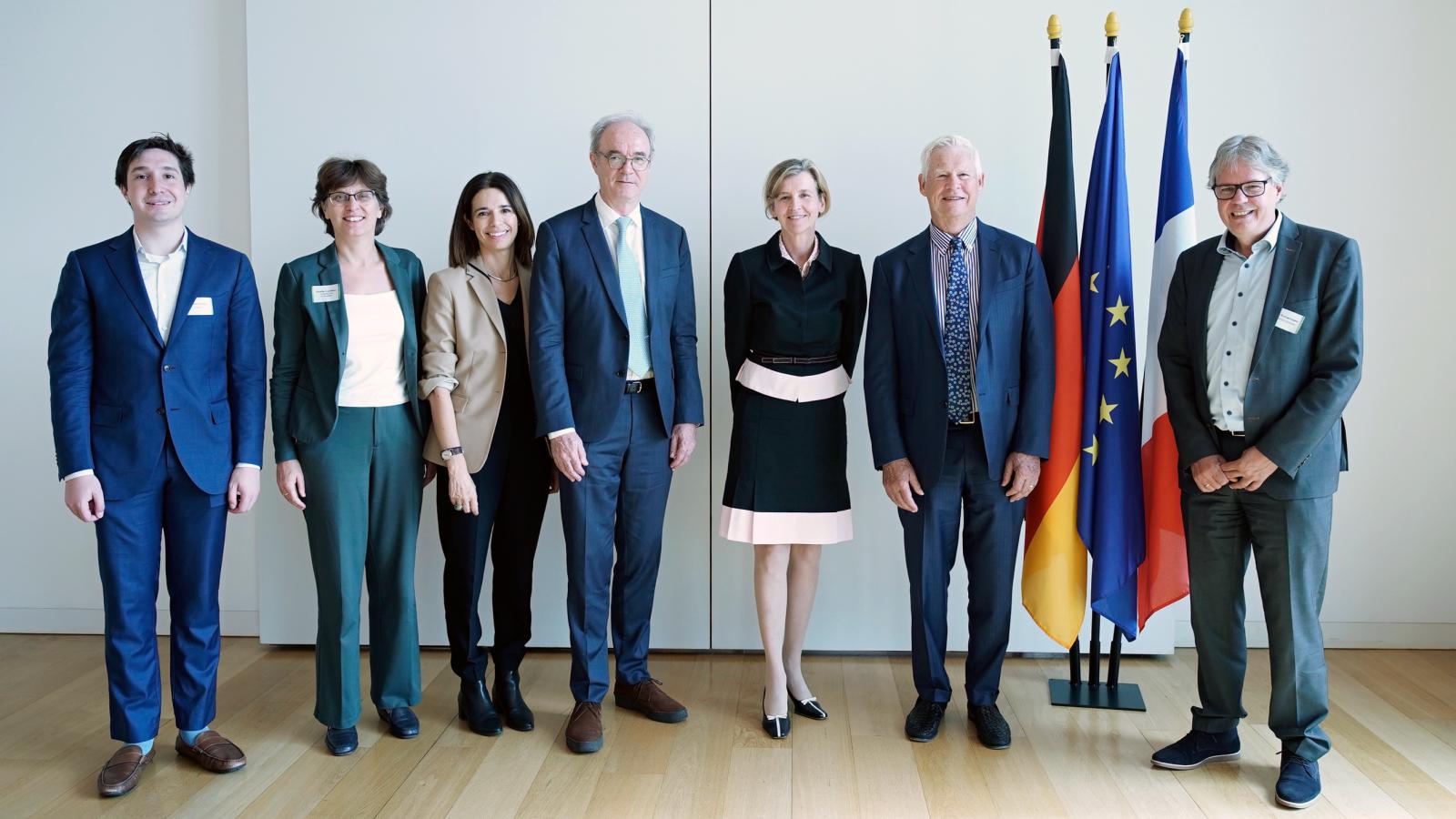New Insights on Climate Finance and Corporate Accountability

Berlin, Germany – 10 September 2024 – The 2024 ECGI Responsible Capitalism Summit concluded at the French Embassy in Berlin on 10th September with a renewed sense of urgency as experts in corporate governance, finance, and international policy called for accelerated climate action. In a memorable moment, Jennifer Morgan, Special Envoy for International Climate Action at Germany’s Federal Foreign Office, issued a bold call to action, stating that;
"we're on the cusp of a great transformation but the cusp will remain a cusp and not actually move into the pace and scale that we need unless we have the kind of radical collaboration that we need in the spirit of the Paris Agreement".
She challenged companies and governments to upscale their commitments, pointing out that climate change is not a future problem but an immediate threat. Her remarks highlighted the need for cross-sector collaboration and policy alignment to prevent further delays in achieving climate goals.
Laurent Fabius, the architect of the Paris Agreement, delivered a reflective keynote in which he acknowledged the progress made since 2015 but cautioned that delaying action is not an option. His remarks resonated throughout the summit, particularly when he concluded that we must be honest about the challenges, but never give in to pessimism.
Organised by ECGI, the summit brought to light critical new insights on how financial markets and corporate boards can drive the transition to a net-zero economy.
Robert F. Engle, Nobel Laureate in Economics, presented new metrics for measuring climate risk in financial portfolios, introducing the concept of climate beta, which quantifies a company’s exposure to climate risk in financial terms. This new tool gives investors clearer insight into how climate change could trigger a financial crisis if banks and corporations continue to hold large stakes in high-emission industries. He then introduced the concept of termination risk which is a long run risk for fossil energy companies and showed that they appear to respond to this risk in ways that are aligned with the Paris Agreement.
One of the key takeaways from the academic sessions was the stark finding that, despite increased commitments to decarbonisation, fossil fuel financing remains a major hurdle. Research presented at the summit revealed that many financial institutions continue to finance new oil and gas projects, undermining the global effort to limit warming to 1.5°C. Data presented at the conference revealed that despite public pledges, several institutions are still funding fossil fuel expansion, signaling the need for tighter regulation and more aggressive financial policies.
The summit also spotlighted bank exit policies as a key driver of decarbonization. Research presented during the decarbonisation session showed that strong bank exit policies—which restrict financing to coal and high-emission industries—are already leading to measurable declines in coal plant activity and emissions reductions. This underscores the power that financial institutions hold in shaping the future of global emissions through capital allocation.
Research on carbon markets emphasised that voluntary carbon offsets—a popular tool for corporate sustainability—still face significant challenges, including integrity issues such as double counting and additionality problems. Without stronger verification mechanisms and regulatory oversight, these markets risk becoming ineffective in achieving real-world decarbonization.
The discussions set a clear agenda for future action: firms must align their financial strategies with long-term sustainability, and governments must regulate financial flows to prevent further investment in fossil fuels. The event highlighted that while corporate commitments are increasing, the pace of real-world decarbonisation remains insufficient.
Key Outcomes:
- New research on fossil fuel financing highlights the need for more stringent policies to phase out financial support for oil and gas expansion.
- Introduction of climate beta, a new financial tool to quantify companies’ exposure to climate risk, developed by Nobel Laureate Robert F. Engle.
- Insights from Estelle Cantillon on the challenges of voluntary carbon markets, emphasising the need for improved verification systems.
- Evidence presented on the effectiveness of bank exit policies in reducing emissions, reinforcing the role of finance in driving decarbonisation.
- A strong call for radical collaboration and policy action from Jennifer Morgan, urging both public and private sectors to upscale their climate efforts.
About ECGI:
The European Corporate Governance Institute (ECGI) is a global research network dedicated to advancing knowledge on corporate governance. The ECGI fosters dialogue between academics, practitioners, and policymakers to promote responsible capitalism and sustainable business practices worldwide.